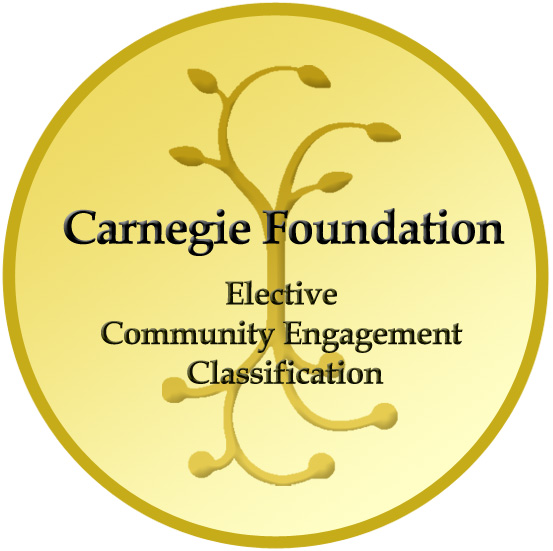Carnegie Foundation Recognizes UMM for Community Engagement
 The following is taken from the Summer 2011 edition of the UMM Review
The following is taken from the Summer 2011 edition of the UMM Review
The educational experience at the University of Maine at Machias has changed quite a bit over the past 100 years. Gone are the days when students would spend all of their time in a classroom listening to a professor teach and then demonstrating their understanding of concepts with a quiz.
Today, UMM students are learning by doing. More importantly, they are stepping off campus to make a real and meaningful impact here in Machias and beyond.
Examples of service learning are evident all over Washington County and throughout every degree program. Here are some highlights: During Maine Recycles Week, psychology professor Meghan Duff takes students to the Bay Area Transfer Station in Machias to educate community members about recycling. In the spring, accounting students team up with the VITA (Volunteer Income Tax Assistance) program to provide tax preparation help to low-to-moderate-income individuals. Students in the GIS (Geographic Information Systems) Lab create new tax maps for area municipalities. Students in Alan Lewis’ Organic Food Production course harvest vegetables for the area food pantry. Environmental Recreation and Tourism Management students spend the fall winterizing homes for the elderly.
This approach to learning and commitment to community does not go unnoticed by those outside UMM’s 43-acre campus. In January, the Carnegie Foundation for the Advancement of Teaching (founded by philanthropist Andrew Carnegie) selected UMM as a recipient of its prestigious 2010 Community Engagement Classification. The classification recognizes the University for its extraordinary service-learning and community service activities.
UMM is one of just 311 out of more than 3,000 colleges and universities nationwide that now hold the Community Engagement Classification.
“We are very honored to receive this designation from the Carnegie Foundation,” said Stuart Swain, provost and vice president for academic affairs. “The classification recognizes the many collaborations and partnerships between UMM and our community. Service learning is part of our culture and has long been an important piece of the academic experience for our students and faculty.”
The Community Engagement Classification helps highlight the reciprocal relationship between campus and community. Without the many community partners who open their doors and serve as mentors, UMM students would graduate without the real-life experiences that help provide a sense of purpose and shape future careers. And without the work performed by UMM students, many community organizations and agencies would simply have to go without. It’s a win-win and provides a layer of meaning and relevance that cannot be achieved in the classroom alone.
